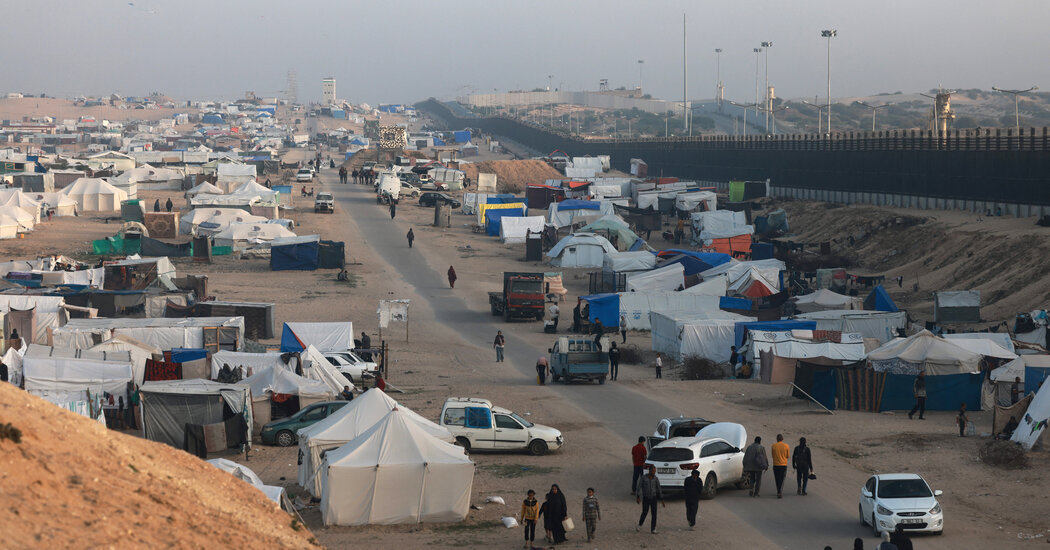For months, Israel and Hamas have been at odds over a host of issues during talks aimed at brokering a truce, including whether Israeli troops would withdraw and the length of a cease-fire.
Now one of the major sticking points to emerge as in-person talks resumed this week is how displaced Palestinians will be able to return to the northern Gaza Strip, according to Israeli, Hamas and regional officials.
Despite mounting international pressure, the talks aimed at brokering a cease-fire between Israel and Hamas and the release of hostages held by militants in Gaza appear to be stalled.
Mediators from Qatar and Egypt have been meeting with Israeli officials and separately with Hamas leaders, trying to find a formula the warring parties can live with. The United States, Israel’s staunchest ally and largest supplier of weapons, has also been involved. On Saturday, Israeli negotiators traveled to Cairo for another round of talks.
As the war nears the end of its sixth month, humanitarian officials have said a cease-fire is urgently needed to allow more aid into the devastated enclave and stave off a looming famine, and the relatives of hostages have become increasingly worried about the fate of their loved ones in captivity.
American officials say that they are also hoping the warring sides reach an agreement soon, and that any temporary cease-fire reached to allow the exchange of hostages for Palestinian prisoners might be extended into a longer-lasting peace.
But what to do about displaced people returning to Gaza City and other northern communities has become a key issue. Hundreds of thousands of people from northern Gaza have been sheltering in crowded schools, tent encampments and relatives’ homes for months, facing severe hunger, poor sanitation and dangerous diseases.
Hamas has been demanding that Palestinians be permitted to return to the north without restrictions, according to Israeli and Hamas officials and two regional officials familiar with the talks. Israel, however, has demanded that it supervise the process, limiting who can return and where they can go.
One Israeli official said Israel was seeking to bar Hamas operatives and “fighting-age men” from returning to the north, where the Israeli military is still trying to defeat pockets of Palestinian fighters. In addition, Israel wants the returnees to be limited to specific areas, the official added, without identifying them.
The Israeli official and the two regional officials spoke on the condition of anonymity to discuss diplomatic negotiations.
In an interview, the Hamas official, Ghazi Hamad, said that Israel was only willing to agree to let Palestinians return to the north under “strict conditions and a few at a time.”
The Israeli army has set up checkpoints on routes from central Gaza into the north and currently is letting only some people pass. Those who have been allowed to cross include truck drivers with aid convoys and technicians repairing phone networks.
Israel’s military campaign has turned large areas in the north into islands of rubble. If Palestinians were to return en masse, many would likely need housing, at least in the short term.
On Sunday, the Israeli war cabinet met to discuss the issue. It was not immediately clear if Israel had shifted its position after the meeting.
While mediators have struggled to bridge differences between the two sides on letting Palestinians return to the north, they have made some progress in persuading Hamas to reduce the number of prisoners it wants Israel to release in exchange for hostages, the two regional officials said.
They said Hamas had softened its previous position on the ratio of hostages to be exchanged for Palestinian prisoners.
The Israeli official also said the two sides had not agreed on the question of who will choose the prisoners to be released.
Aaron Boxerman contributed reporting to this article.
















































